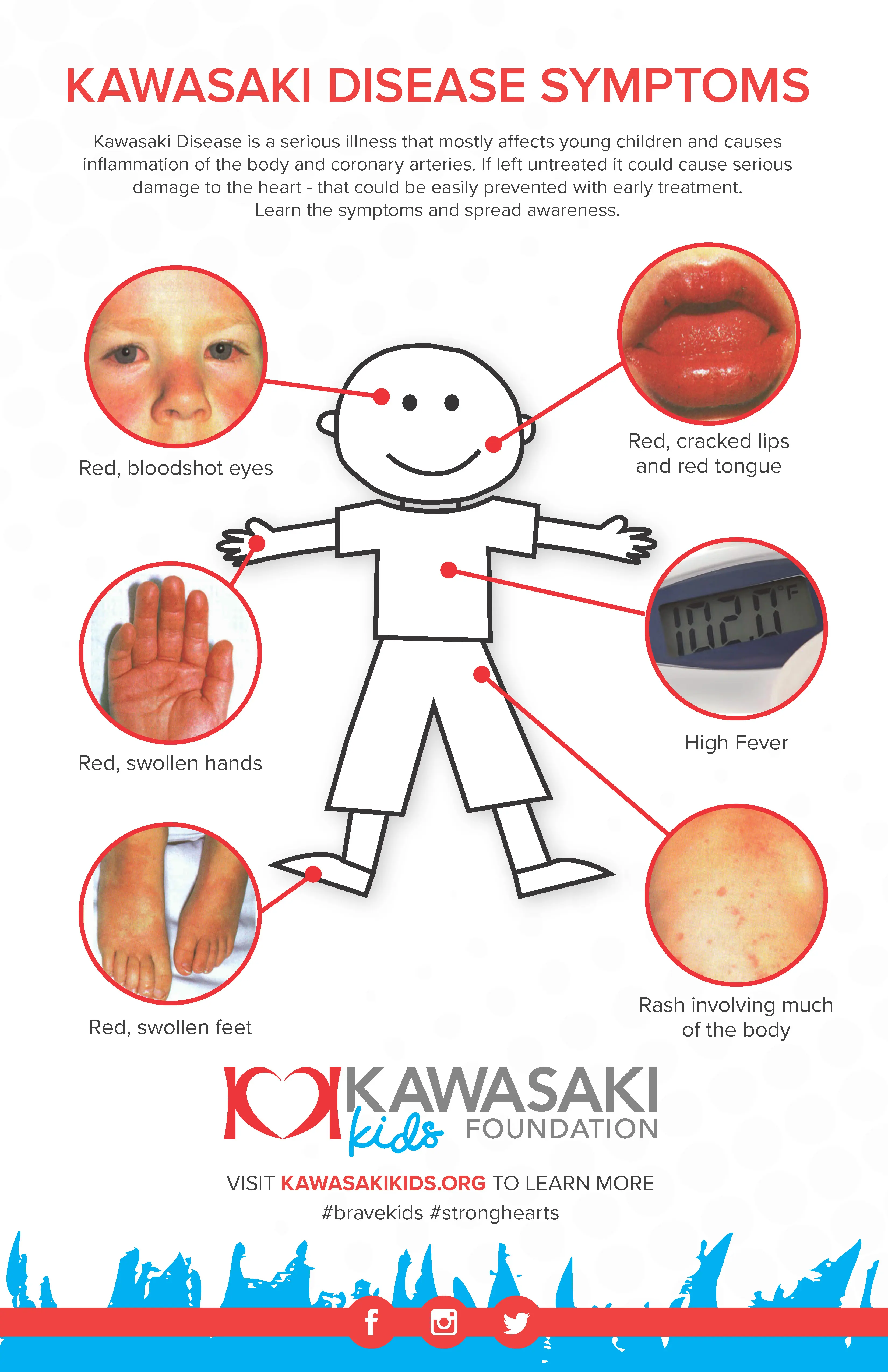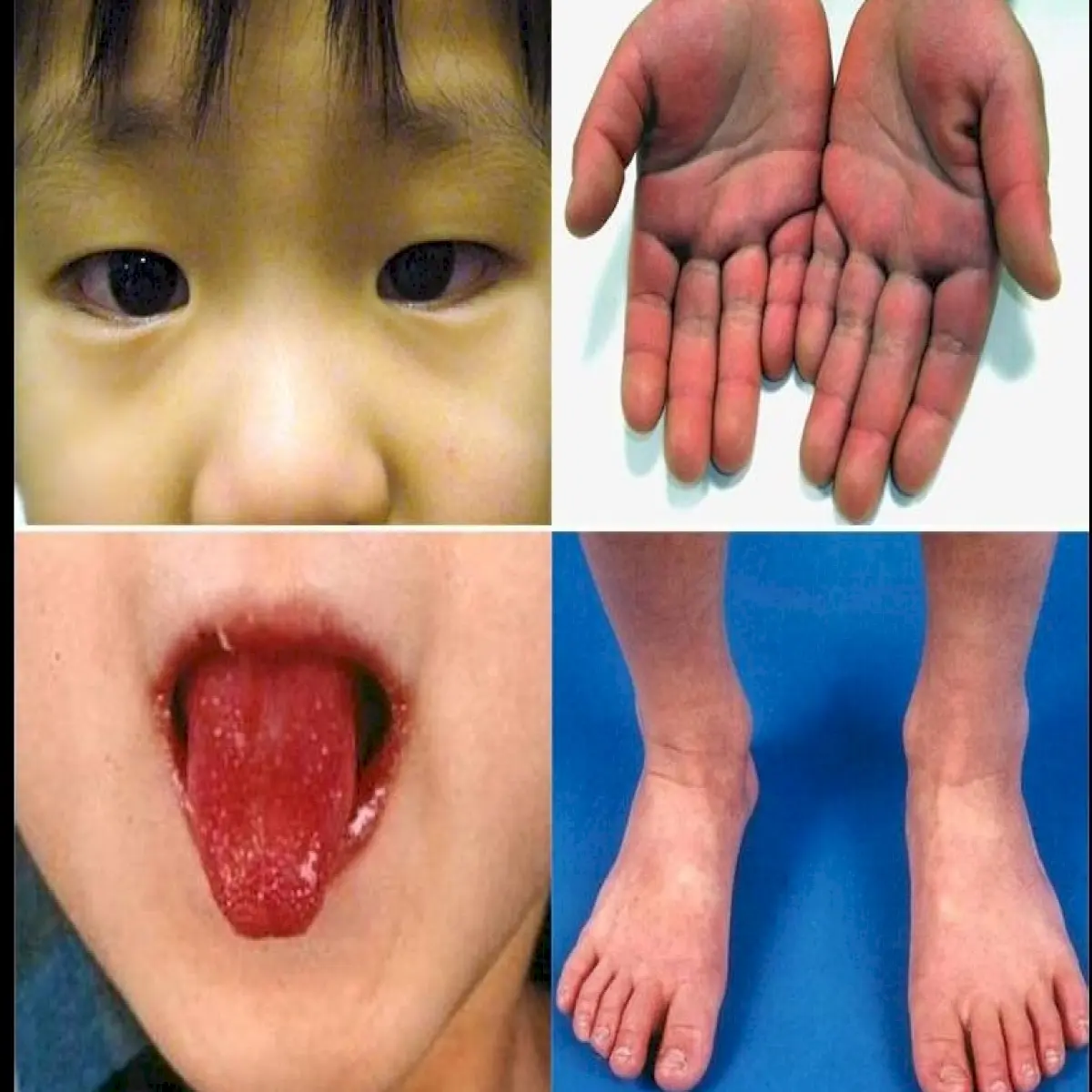Can Kawasaki Disease be Cured?
Sometimes
Treatment can reduce inflammation and prevent complications; outcomes depend on the promptness of treatment and the development of coronary artery abnormalities

What is Kawasaki Disease?
Kawasaki disease is a rare childhood illness that causes inflammation in blood vessels. Treatment includes intravenous immunoglobulin (IVIG) and aspirin to reduce inflammation and prevent complications.

Clinical Aspects

Characteristics
Childhood illness that causes inflammation in the walls of small and medium-sized arteries throughout the body

Symptoms
High fever, red eyes, rash, swollen and red hands and feet, swollen lymph nodes

Diagnosis
Clinical examination, sometimes additional tests

Prognosis
Generally good with early diagnosis and appropriate treatment

Complications
Coronary artery aneurysms, complications of untreated Kawasaki disease
Etiology and Treatment

Causes
Exact cause unknown; immune response triggered by infection or other factors

Treatments
Intravenous immunoglobulin (IVIG), aspirin, treatment of symptoms

Prevention
Intravenous immunoglobulin (IVIG), aspirin, treatment of symptoms
Public Health and Patient Perspectives

Epidemiology
Inflammatory condition affecting blood vessels

Patient Perspectives
Early detection and treatment are crucial for better outcomes
For personalized advice and care, always seek the assistance of healthcare professionals. This information is meant for general understanding and not as a replacement for professional medical advice.
Share: